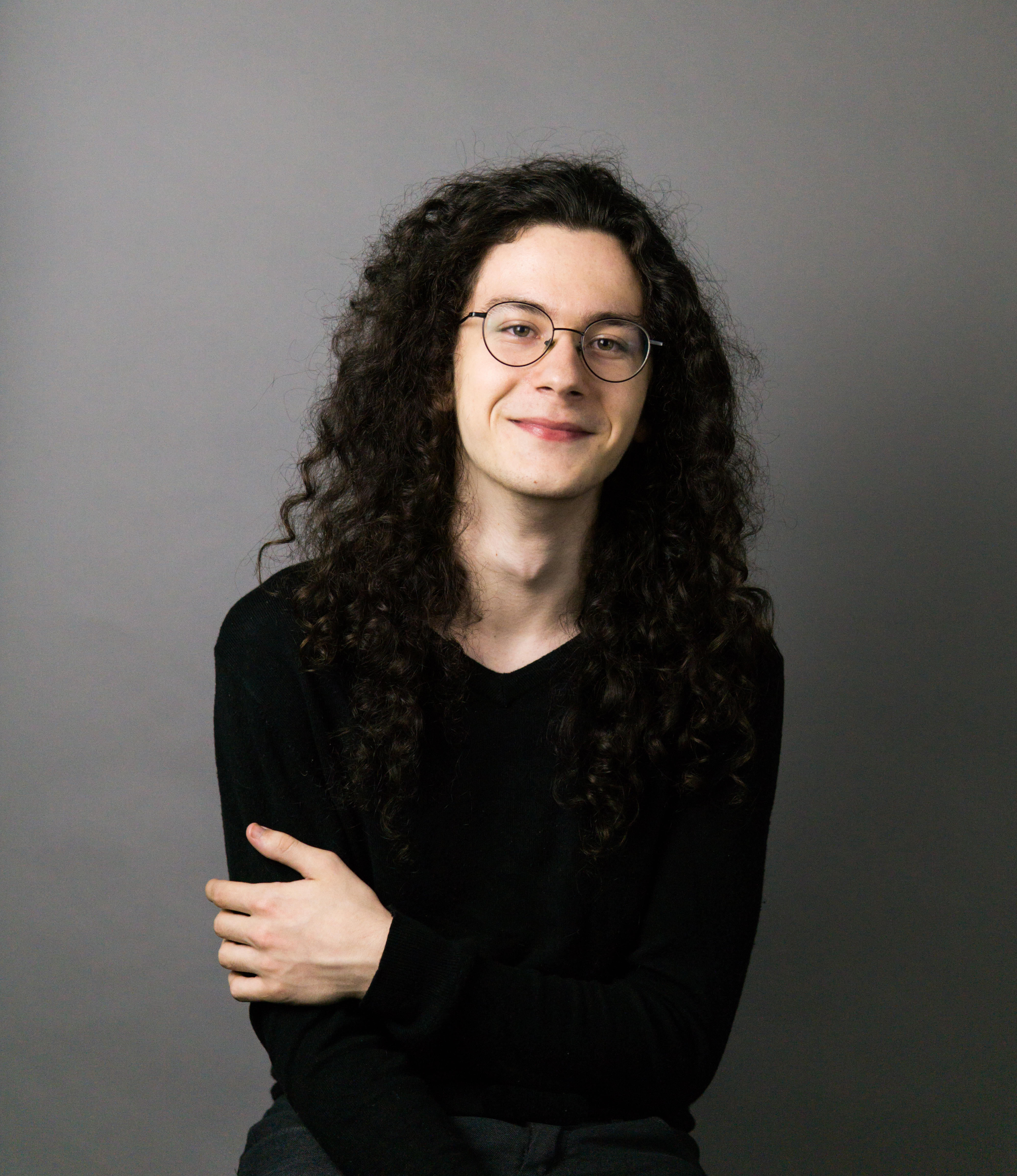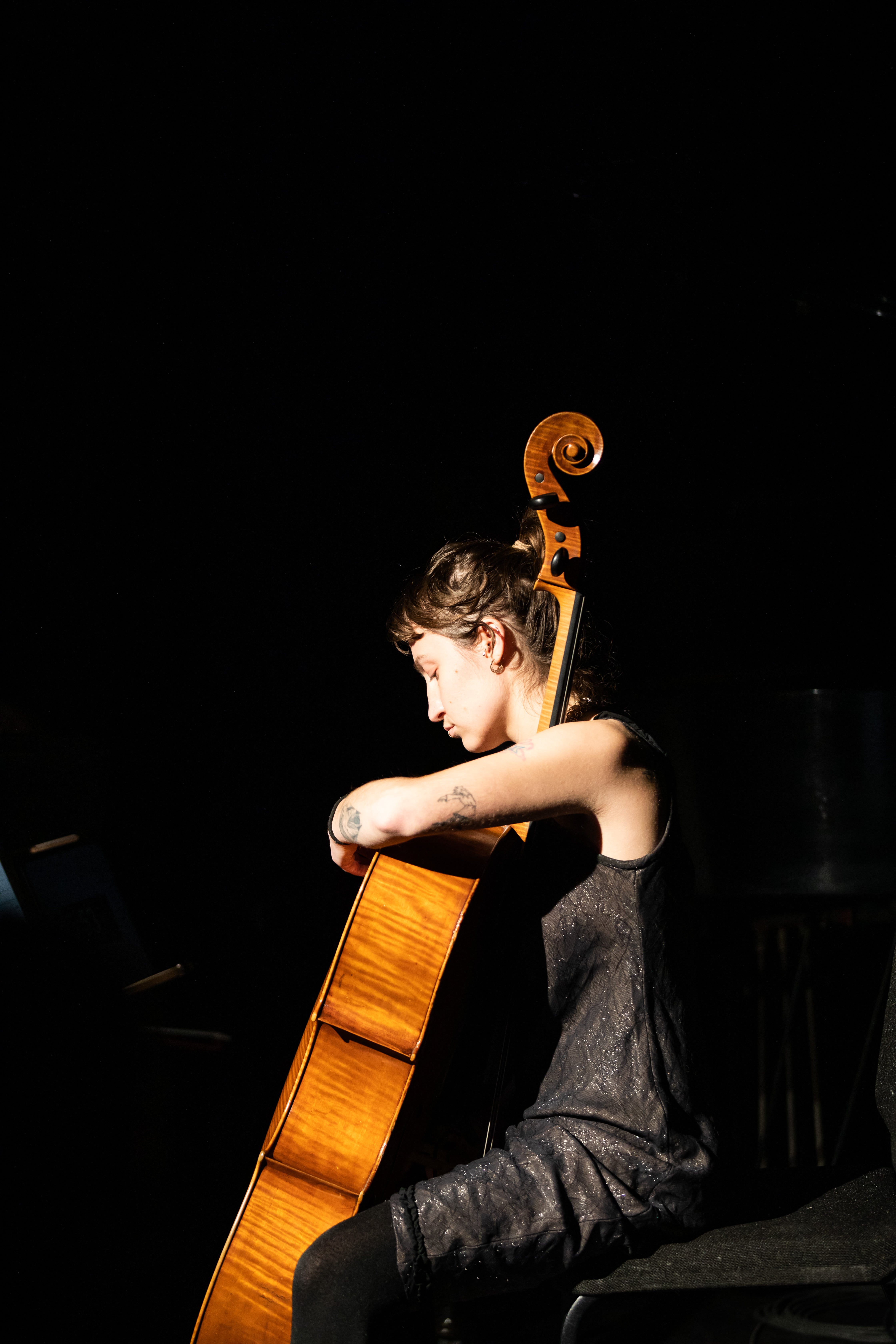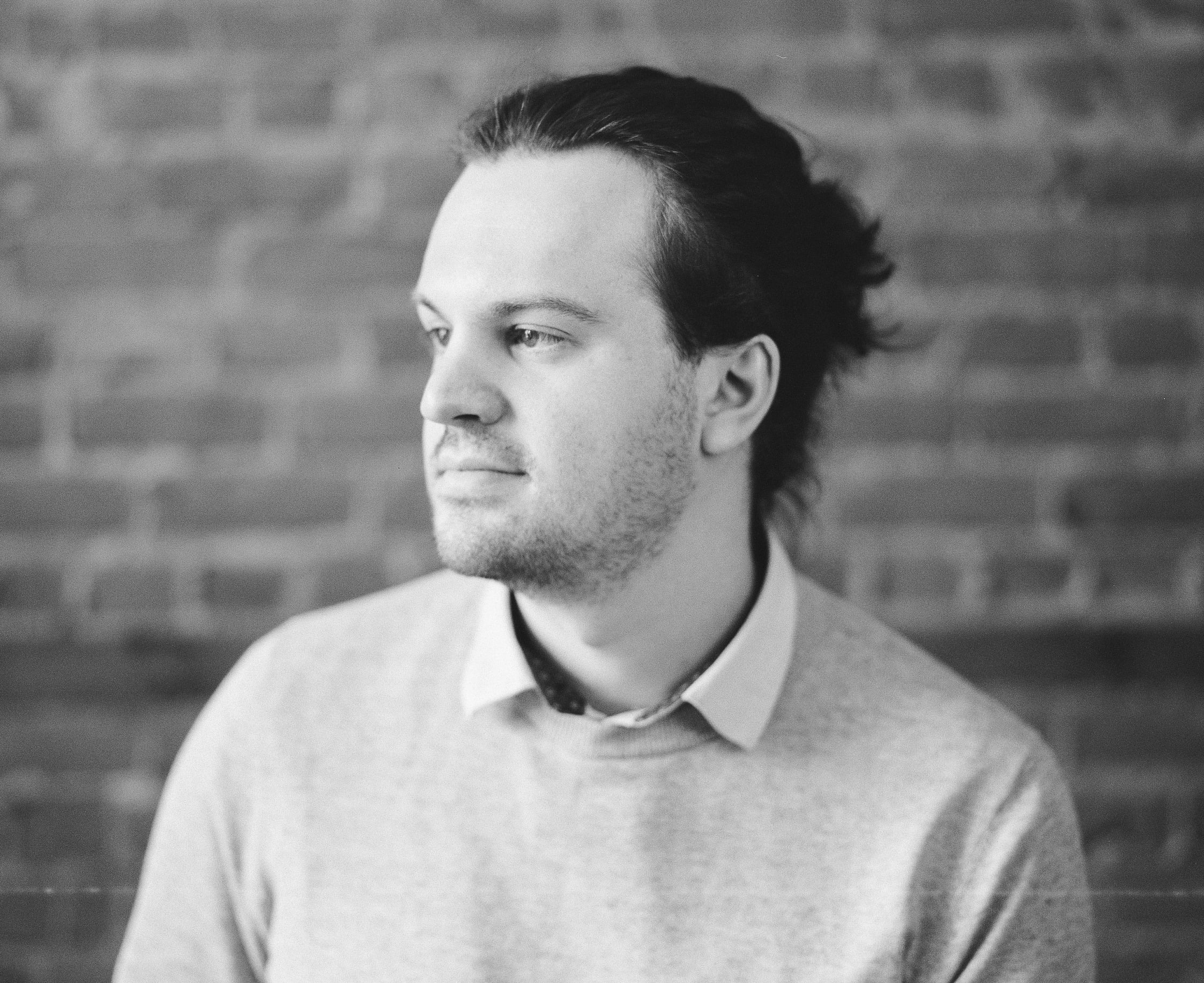November 7th 2024
Soundwich XIX
7:30pm Conference / 8pm ConcertIn collaboration with the Conservatoire de musique de Montréal
4750, Av. Henri-Juilien
Get your tickets
Jules Bastin-Fontaine
Jules Bastin-Fontaine (born in 2000) is a composer and tuba player from Quebec City, now based in Montreal. He earned his master's degree with distinction in instrumental composition in 2024 from the Conservatoire de musique de Montréal, studying under Maxime McKinley. He is currently pursuing an undergraduate degree in electroacoustic composition at the same institution with Louis Dufort, as well as a professional development internship with Maxime McKinley and Ofer Pelz.His music has received several prizes, including the "Relève VVA 2019" award from E27 Musiques nouvelles for his piece Trio in homage to Bruckner, and three awards from the "SOCAN Foundation Young Composers’ Competitions." At the 2020 virtual Orford Academy, his work L’heure joyeuse won the award allowing it to be performed during the "Génération 2020" concert tour. His piece Compositio acousmatique I won second prize at the JTTP 2023 competition.
His works have been performed by various ensembles, including the Ensemble contemporain de Montréal (ECM+), Ensemble Paramirabo, Ensemble MusiquAvenir, the Orchestre symphonique du Conservatoire de musique de Montréal (OSCMM) conducted by Tania Miller, and the Orchestre de la francophonie conducted by Simon Rivard. In 2024, he participated in a creation residency with composer Lily Koslo at the Akademie der Künste in Berlin.
Program
Composition acousmatique III
Composed at the Conservatoire de musique de Montréal between November 2023 and October 2024, Composition acousmatique III is an octophonic piece that presents various sound spaces as places for counterpoints of synthetic material.

Audréanne Filion
Audréanne Filion is a cellist, composer, and improviser based in Montreal. Her work primarily focuses on creation, contemporary, and experimental music. She has premiered several works by her colleagues in the Canadian scene, including pieces by Sarah Davachi, Takuto Fukuda, Keiko Devaux, Geneviève Ackerman, Jean Décarie, Simon Martin, Mike Maevsky, Yulin Yan, and many others.Audréanne is a member of Ensemble Tesse, Ensemble Éclat, Quatuor Mémoire, and the duo Filion/Bourgault, and she also collaborates as a freelancer with various chamber ensembles such as Projection Libérantes, No Hay Banda, SuperMusique, and Novarumori. She has a solo performance project that combines cello improvisation, electronic composition, and real-time processing, exploring styles that range from instrumental and electronic to ambient, noise, classical, and experimental.
Her exploration includes microtonality and sound phenomena such as beats, distortion, feedback, and the blending of acoustic and electronic sounds. Her music has been featured at events like OK LÀ, Totem Électrique XV, Interzone Editions, EAF, the 6th edition of the ViU concert, Midfield 02, the 2022 Masse concert of Codes d’accès, and at the Jardins de Métis in Rimouski in 2022.
Active in the experimental pop scene, Audréanne performs with various groups, including Everly Lux and Xela Edna, and frequently collaborates with electronic musicians such as YlangYlang, Jessica Moss, Kid Koala, Erika Angell, and Myriam Bleau. Her musical activities have taken her to Canada, the United States, the United Arab Emirates, France, and Germany. Trained at the Conservatoire de musique de Montréal, Audréanne holds a bachelor’s degree and an artist diploma in cello performance, as well as a bachelor’s degree in electroacoustic composition.
Program
Live pour violoncelle et électroniques
This performance explores the intersection between contemporary cello techniques and immersive electronic textures. By combining dissonant melodies and the raw, grainy sounds of the cello with live electronics and controlled feedback, a soundscape emerges where beats, noise, and microtones evoke states of wandering and tension. The performance navigates between moments of abrasive intensity and meditative calm, addressing themes of duality, saturation, and fragile balance.

Gabriel Geneau
Gabriel Geneau is a versatile artist who broadens the horizons of artistic expression through modern tools. By exploring the myriad possibilities of the synergy between music and visuals, he creates aesthetic and impactful works that invite the audience on a captivating sensory journey. His creations provide an experience where the senses intertwine and blend.
Always attentive to push the boundaries of his creativity, Gabriel Geneau passionately explores new avenues, embracing innovation and diversity in his creative process. He integrates technology while remaining true to the very essence of artistic expression.
Program
Ecdysis
Ecdysis unfolds as a captivating short film of experimental dance, exploring the nuanced journey of liberation. The film captures the subtle yet powerful struggle of a protagonist, ultimately leading to a moment of profound release. The fluid connections between a soundtrack that lingers in the realm of hypersensitivity, symbolic imagery, and dynamic lighting design enhance the overall sensory experience, immersing the audience in the ebb and flow of the protagonist's transformative struggle.

Hans Martin
Hans Martin holds a master's degree in composition from the Conservatoire de musique de Montréal. During his studies, he worked with Jimmie LeBlanc, Klaus Lang, Serge Provost, and Michel Tétreault. Composing instrumental, electroacoustic, and mixed works, he focuses on the experience of sound as an acoustic phenomenon. His research is influenced by musical forms stemming from the algorithmic tradition from the Middle Ages to the present.
Martin's works have been performed by various ensembles, including the SMCQ Ensemble, the Petits Chanteurs du Mont-Royal, the Ensemble contemporain de Montréal (ECM+), the Orchestre de la Francophonie, the Hanatsu Miroir ensemble, Ensemble AKA, and students from Klangforum Wien (PPCM), as well as several student groups such as the symphony orchestra, string orchestra, and contemporary music ensemble of the Conservatoire de musique de Montréal, along with the EROC ensemble at the Université de Montréal.
In addition to his work as a composer, he has also collaborated as a writer for the journal Circuit, and has worked as a sound designer with director Simon Boudreault and students from the Conservatoire d'art dramatique de Montréal, as well as with director Charles Voyer and the independent theater scene.
Program
Songe de Scipion
The "Dream of Scipio," a famous passage from Cicero's work De Republica, presents a fictional dialogue between Scipio Aemilianus, a Roman general, and his deceased grandfather, Scipio Africanus. In this conversation, the ancestor describes the cosmic structure of the universe and reveals the immortal nature of the soul to his descendant.
Several authors, including Macrobius, Boethius, and Petrarch, have commented on this Dream of Scipio, which is regarded as a sort of counterpart to Plato's "Myth of Er" described in Book X of The Republic. More broadly, the Pythagorean idea of the harmony of the spheres, which underpins these ancient texts, has left a lasting impact on musical, cosmological, and mathematical thought throughout Western history.
Inspired by these ideas, my piece consists of nine sections, each symbolically representing a planet of the solar system as described by Cicero. Each section lasts one minute, following a general movement from the terrestrial to the celestial.
I would like to express my gratitude to Jérémie de Pierre for his contribution of recorder sounds used in this piece.
